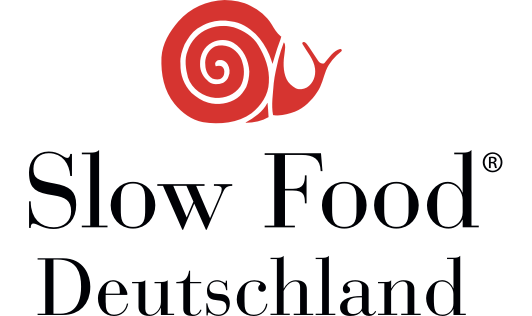About us
About Us
A non-profit membersupported association, Slow Food was founded in 1989 to counter the rise of fast food and fast life, the disappearance of local food traditions and to encourage people to be aware about the food they eat, where it comes from, how it tastes and how our food choices affect the rest of the world. Slow Food believes that everyone has a fundamental right to the pleasure of good food and consequently the responsibility to protect the heritage of food, tradition and culture that make this pleasure possible
Slow Food has over 100,000 members joined in 1,500 convivia – our local chapters – worldwide, as well asa network of 2,000 food communities, joined in the Terra Madre network, who practice small-scale and sustainable production of quality foods. Thanks to its projects and activities, the network involves millions of people in 150 countries.
Good, clean and fair. Slow Food believes that the food we eat should taste good and be healthy; that it should be produced in a clean way that does not harm the environment, animal welfare and that food producers should receive fair compensation for their work.
Our Mission. Slow Food works to defend biodiversity and to promote a sustainable and environmentally friendly food production and consumption system; to spread sensory education and responsible consumption; and to connect producers of quality foods with co-producers (consumers) through events and initiatives.
Defending biodiversity
Slow Food is committed to protecting traditional and sustainable quality foods, defending the biodiversity of cultivated and wild varieties as well as methods of cultivation and production that are disappearing due to the prevalence of processed food and industrial agribusiness. Through the Ark of Taste and Presidia projects (supported by the Slow Food Foundation for Biodiversity) and the Terra Madre network, Slow Food seeks to protect our invaluable food heritage. Projects such as these as well as the Thousand Gardens in Africa are particularly important in countries of the Global South where defending biodiversity not only means improving the quality of life but actually saving lives, communities and cultures.
Taste education
By reawakening our senses and understanding where our food comes from, how it was produced and by whom, adults and children can learn to appreciate the cultural and social importance of food. Our education projects differ from most food education as they take into consideration all the different dimensions of food, such as culture and conviviality. Convivium activities introduce local foods and producers to both members and non-members, while Taste Workshops offer guided tastings with food experts. School initiatives like school gardens led by Slow Food members offer young eaters hands-on learning experiences as they grow their own food. Slow Food created the University of Gastronomic Sciences (UNISG) to offer a multidisciplinary academic programme in the science and culture of food. UNISG is another way in which Slow Food brings together innovations and research from the academic and scientific world with the traditional knowledge of farmers and food producers.
The Terra Madre Network
The Terra Madre network of food communities was launched by Slow Food in 2004 to give a voice and visibility to the small-scale farmers, breeders, fishers and food artisans around the world whose approach to food production protects the environment and communities. The network brings them together with academics, cooks, consumers and youth groups so that they can join forces in working to improve the food system. Food communities come together every two years at the global meeting held in Turin, whilst national and regional meetings are regularly organized around the world.
